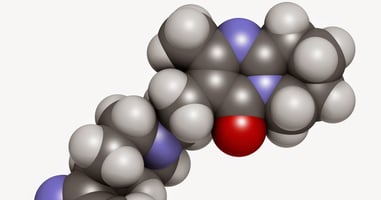Patients with a recent first episode of schizophrenia who are treated with a long-acting injectable...
LAI Antipsychotics May Reduce Rehospitalization of Patients With Schizophrenia
 |
Data drawn from the Truven Health MarketScan Multi-State Medicaid Database (2007 to 2012) was used to analyze 1,450 patients with a schizophrenia diagnosis alone and 15,556 patients with a codiagnosis of schizophrenia and bipolar disorder or major depressive disorder.
About 6.3% of the patients were prescribed a long-acting injectable antipsychotic after the index hospitalization, 84.4% of patients were prescribed an oral antipsychotic, and the remaining 9.3% were prescribed a short-acting injectable antipsychotic.
Overall, the all-cause hospital readmission rate at 60 days was 30.8%, but was five percentage points lower for those receiving the long-acting injectable formulation, wrote Joanna MacEwan, Ph.D., of Precision Health Economics in Los Angeles, and colleagues.
“Although the absolute differences may appear relatively small ... they can be of great value to patients and payers alike, considering the critical importance of preventing such events,” the researchers wrote.
“Additional research comparing cause-specific reasons for rehospitalization (including psychiatric relapse, adverse event, and nonpsychiatric reason) and the ability to track and measure cause-specific rehospitalizations in large national databases will provide further insight on the drivers of rehospitalization rate differences between patients treated with LAIs and those treated with oral antipsychotics,” they concluded.
The study was supported by Otsuka Pharmaceutical Inc. and Lundbeck LLC.
For related information, see the Psychiatric News article “Long-Acting Injectable Reduces Schizophrenia Symptoms.”
(Image: iStock/Esben_H)





